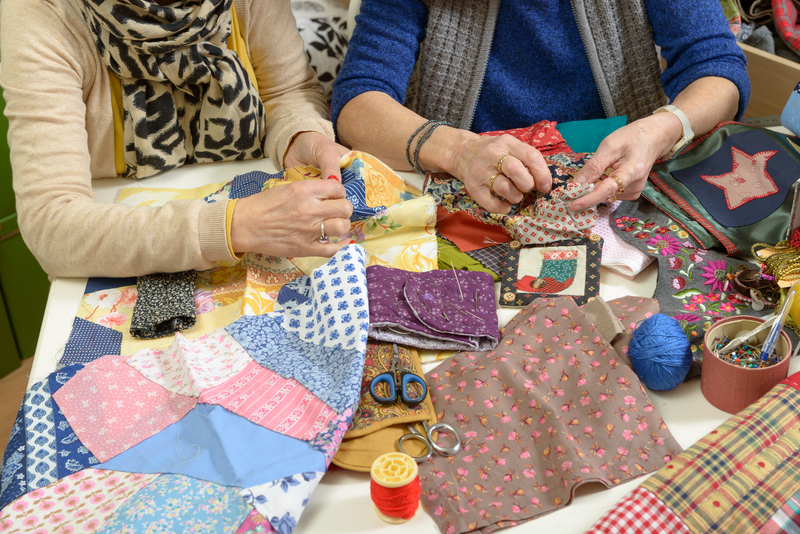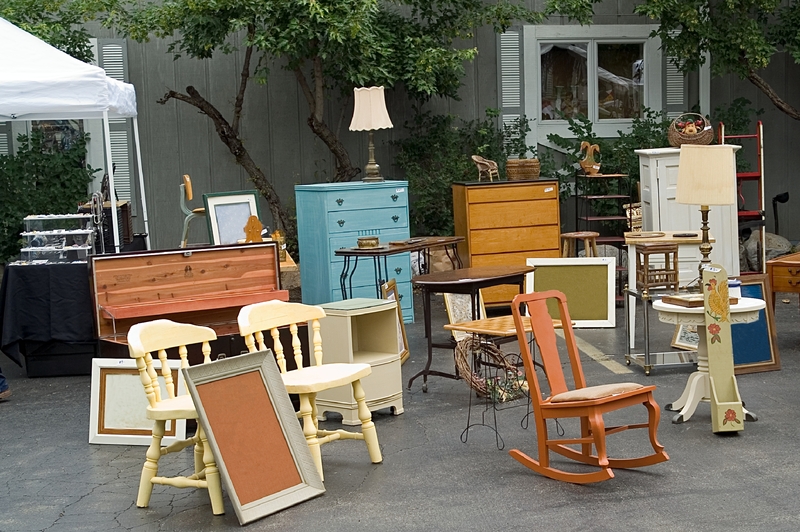Creative Ways to Cut Costs When Getting Rid of Bulky Waste Items
When it comes time to declutter your home, moving, renovating, or simply refreshing your space, you may be faced with the challenge of disposing bulky waste items. From broken furniture and appliances to old mattresses and large yard debris, these bulky waste items can be difficult, costly, and time-consuming to get rid of. But did you know there are innovative, eco-friendly, and budget-friendly ways to manage this process? In this comprehensive guide, we'll explore creative ways to cut costs when disposing of bulky waste and make your clean-up journey smoother and cheaper.

Understanding Bulky Waste Disposal
Bulky waste refers to items that are too large to be collected by standard waste removal services. Common examples include:
- Old sofas, chairs, and tables
- Bed frames and mattresses
- Large household appliances (fridges, stoves, washers)
- Carpets, rugs, and other oversized textiles
- Garden waste or building debris
Municipal collection often charges extra for collecting these items, or may not accept them at all. Hiring a junk removal service can be expensive, and landfill fees keep rising. So, how can you dispose of bulky waste affordably and responsibly?
1. Reuse and Repurpose: The Zero-Cost Solution
Give Items a Second Life
The cheapest way to get rid of large waste is to not discard it at all. Consider if your bulky item can be reused or repurposed before heading to the landfill. Here are some ideas:
- Upcycling: Turn an old ladder into a bookshelf, pallets into garden furniture, or broken mirrors into mosaics.
- DIY Repair: If it's just a minor issue, fix the item. There are many tutorials online for repairing furniture, electronics, and appliances.
- Functional Transformation: Convert a worn couch into a pet bed, or a table into a plant stand.
Not only do you save on disposal fees, but you also get a unique item and help the environment by reducing waste.
2. Donate or Give Away: Altruism That Saves Money
Local Charities and Organizations
Many bulky items are still useful to others. Charities, shelters, and community organizations often accept lightly used furniture and appliances. Some will even pick up items for free, cutting out transport costs. Consider:
- Salvation Army
- Habitat for Humanity's ReStores
- Goodwill
- Local churches or family support services
*Tip: Always call first to check what items they accept and if they provide a pickup service.*
Online Marketplaces & Social Media
Use platforms like Facebook Marketplace, Craigslist, Freecycle, or local community groups to give away or even sell bulky items. "Curb alerts" - placing items on the curb with a "free" sign - can sometimes have your unwanted item gone within hours.
3. Sell for Scrap or Parts: Turn Junk into Cash
Your unwanted bulky waste could have value as scrap, especially metal items like washing machines, bed frames, or refrigerators. Here's how to maximize savings:
- Local Scrap Yards: Separate items by material and bring them in for weighing - you might be surprised how much you can earn!
- Online Parts Sellers: Remove valuable parts such as electric motors, wiring, or hardware and list them online.
- Specialized Recycling: Metal, electronics, and even certain plastics have value in the recycling market.
This method not only reduces your disposal costs but may even replenish your wallet.
Save Big with City-Sponsored Bulky Waste Collection Days
Check Your Local Municipality Calendar
Many cities offer scheduled free bulky item collection days where residents can leave giant items on the curb for removal - often at no extra charge. Others provide bulk drop-off events, where you can bring in your bulky waste for free or at a reduced fee.
- How to Find These Events? Visit your city or county waste management website or follow their social media for announcements.
- Place items neatly on the curb only during the allowable window to avoid fines.
This simple step can save you significant cash versus private haulers or landfill fees.
5. Pool Resources: Share Dumpster Costs or Transport
Neighborhood Cleanup Events
If you and your neighbors all have items to discard, why not work together? Renting a dumpster or hauling service as a group splits the cost dramatically.
- Organize a bulk waste day in your community.
- Rent a large dumpster and share the expense amongst households.
- Arrange a shared pickup with a local junk hauler.
Borrow Instead of Rent
Need a truck to transport items? Ask if your neighbors, friends, or family have one you can borrow in exchange for gas or a helping hand, rather than renting from a company.
6. Use "Bulk Pickup" Services Strategically
If your regular waste company offers bulky waste pickup for a fee, maximize your investment:
- Schedule pickups for when you have multiple items, not just one.
- Ask friends and neighbors if they want to split costs and consolidate.
- Understand the weight and size limits to avoid additional charges.
*Always check your waste provider's guidelines so you don't get hit with surprise fees!*
Pro Tip:
Combine as many eligible items as possible in a single appointment to get the most out of your pickup fee.
7. Creative Disposal of Special Bulky Items
Mattresses
- Mattress Recycling: Many areas now offer dedicated recycling. Some take them for free, others charge a small fee but often less than landfill.
- Retailer Take-Back: If you're buying a new mattress, ask if the retailer will remove the old one for free.
Large Appliances
- Retail Swap: Major appliance sellers will often remove old items for free when delivering new ones.
- Manufacturer Programs: Many companies offer "take-back" or recycling incentives for old products.
Carpets and Large Rugs
- Reuse Locally: Animal shelters may accept old rugs as pet bedding.
- Creative Reuse: Cut into smaller pieces for matting or insulation, or offer to artists and crafters.
8. Save by Disassembling and Downsizing
Big, heavy items may cost more to move or dispose of than smaller ones. If possible:
- Break down furniture into flat pieces or smaller sections.
- Remove legs from tables and sofas.
- Take apart modular items (like IKEA furniture).
Why? Smaller loads may fit in your vehicle for DIY transport, reduce pickup fees, or minimize landfill charges (often charged by volume/weight).
9. DIY Haul to Landfill: Economical if Done Right
If you have a suitable vehicle or can borrow one, hauling your bulky items to the local landfill or transfer station can be the lowest-cost option... if you do your homework first:
- Check local rates - some allow residents a certain number of free or reduced-fee loads each year.
- Sort materials to maximize recycling (wood, metal, electronics) and minimize landfill (often cheaper for recyclables).
- Visit during off-peak hours to save time.
- Ask if "clean load" discounts apply (unmixed recyclables only).
*Don't forget to bring proof of residency and follow safety regulations for hauling bulky waste!*
10. Avoiding Hidden Fees and Penalties
One of the biggest ways people lose money when discarding bulky waste is through unexpected extra charges:
- Leaving prohibited items in your regular garbage or on the curb (may result in fines).
- Not following size/weight/time rules for bulk pickup.
- Contaminating recycling bins with non-recyclable bulky waste.
- Creating unsightly piles that attract community complaints or municipal action.
Always read your local guidelines and ask your waste provider for an up-to-date list of accepted items, prohibited materials, and size limits.
Environmental and Social Benefits
Finding creative ways to cut costs for bulky item disposal doesn't just help your wallet--it's great for your community and the planet! Here's how:
- Less landfill waste means less environmental impact.
- Donating or reusing supports those in need.
- Recycling conserves resources and energy.
- Safe disposal prevents illegal dumping and community blight.

Frequently Asked Questions (FAQ)
What is considered "bulky waste"?
Bulky waste typically includes large household items that won't fit in your normal garbage bin, such as furniture, appliances, mattresses, carpets, and yard debris.
Can I leave bulky items on the curb?
Only if your city has a scheduled bulky item collection day or you've arranged a pickup. Leaving unwanted items out at other times can result in fines.
Are there free options for disposing of bulky waste?
Yes! Donation, recycling, city-sponsored events, and "freecycle" groups are excellent cost-saving methods.
How can I save money when I must pay for bulk waste removal?
- Consolidate all items into one pickup.
- Ask neighbors to share the cost.
- Break down items to reduce volume and weight.
- Sort out recyclable materials to lower disposal fees.
Conclusion: Save Money and the Planet When Disposing of Bulky Junk
In today's world, throwing away big, heavy waste doesn't have to break the bank. By being informed, resourceful, and a little creative, you can greatly reduce your bulky item disposal costs. Whether you choose to reuse, recycle, donate, pool resources, or capitalize on your city's free collection options, the strategies above are sure to save you time, money, and hassle.
Next time you face a mountain of unwanted stuff, refer back to this guide. With a plan, a bit of teamwork, and some online research, getting rid of bulky items will be kinder to your wallet and to the planet.
Start today! Choose a creative, affordable, and environmentally friendly way to get rid of your bulky waste.
Remember: The most sustainable--and economical--choice is always to avoid waste whenever possible!
